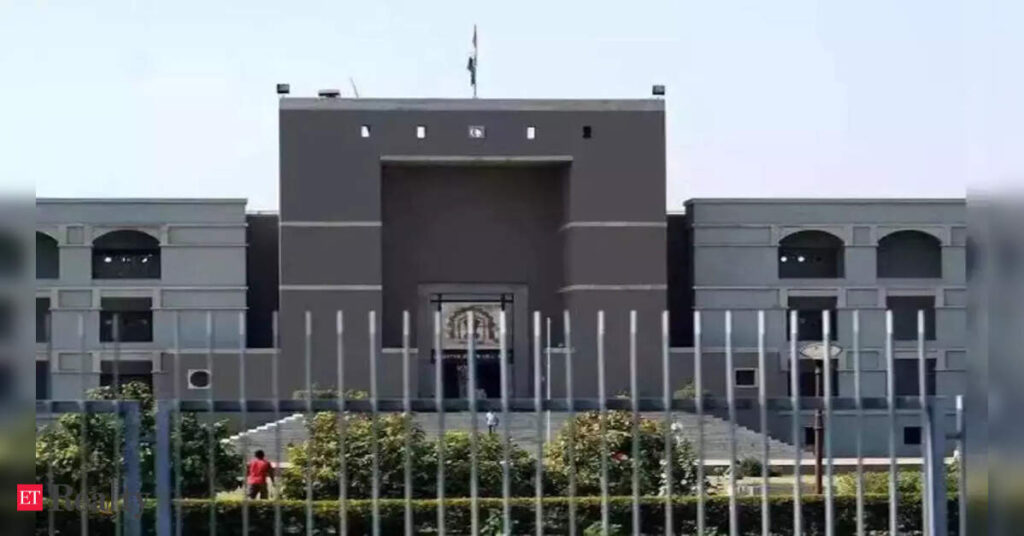Property transactions involve several legal documents, but none are as crucial as the final agreement that confirms ownership. A sale deed in Tamil Nadu plays this role by legally validating the transfer of property rights from the seller to the buyer. It includes vital details like buyer-seller information, sale value, and terms of transfer. Before executing the deal, it’s important to understand the sale deed format in Tamil Nadu, applicable charges, and mandatory registration requirements. This guide also walks you through stamp duty, cancellation, and how to get a sale deed online in Tamil Nadu.
What are the Stamp Duty and Registration Charges in Tamil Nadu?
When you purchase a property in Tamil Nadu, you are required to pay specific government fees to legalise the transfer of ownership. The primary costs are the stamp duty and registration charges, which are a significant part of the overall property cost.
| Type of Charge | Rate Applicable in Tamil Nadu | Remarks |
|---|---|---|
| Stamp Duty | 7% of the property’s value | This is a mandatory state tax on the transaction document. A detailed look at stamp duty can provide more context. |
| Registration Fee | 4% of the property’s value | This fee is for the service of officially recording the property transfer in government records. |
| Total Cost | 11% of the property’s value | Buyers must account for this significant additional cost over the property’s price. |
| Cancellation Fee | Rs. 50 | A nominal fee is charged for registering a deed of cancellation, if needed. |
The charges are calculated based on the property’s Guideline Value or the market value, whichever is higher. The Guideline Value is the minimum property rate determined by the state government. The combined sale deed percentage in Tamil Nadu is among the highest in the country.
Unbeatable Price 5-Star Rated Partner! 2200+ Shades! Top Quality Paint Free Cancellation!

Get a rental agreement with doorstep delivery

Find the BEST deals and get unbelievable DISCOUNTS directly from builders!

5-Star rated painters, premium paints and services at the BEST PRICES!
For a deeper understanding of these charges, our guide on stamp duty and property registration charges in Tamil Nadu is a valuable resource.
Essential Clauses in a Sale Deed (Tamil Nadu)
A well-drafted sale deed format in Tamil Nadu is crucial for protecting the rights of both parties. It must contain specific clauses that clearly outline the terms and conditions of the property sale.
- Details of the Parties: Full names, addresses, ages, and PAN/Aadhaar details of both the seller (vendor) and the buyer (vendee).
- Property Description: A complete and unambiguous description of the property, including its location, survey number, boundaries, and measurements.
- Sale Consideration: The final agreed-upon price of the property, which must be mentioned in both numbers and words.
- Payment Details: A clause specifying how the sale amount has been paid or will be paid by the buyer to the seller.
- Passing of Title: A declaration stating that all rights, titles, and interests in the property are being transferred to the buyer.
- Indemnity Clause: The seller guarantees to compensate the buyer for any future losses arising from defects in the property’s title.
- Encumbrance Status: A declaration by the seller that the property is free from any loans (mortgages), legal disputes, or other claims.
- Possession Clause: A statement confirming the date on which the physical possession of the property is handed over to the buyer.
- Witness Information: The names and signatures of at least two witnesses are required to attest to the signing of the deed.
What are the Documents Required for Sale Deed in Tamil Nadu?
Here is a list of the primary documents required, along with their purpose in the registration process.
| Document Name | Purpose |
|---|---|
| Original Title Deed | To prove the seller’s ownership of the property. |
| Parent Document (Previous Deeds) | To establish the chain of ownership over the years. |
| Patta/Chitta Extract | A government revenue record confirming the landowner’s name and property details. |
| Encumbrance Certificate (EC) | To confirm the property is free from any registered legal or financial liabilities. |
| Building Plan Approval | To verify that the construction of the building is legally sanctioned. |
| Property Tax Receipts | To show that all taxes due to the local municipal body have been cleared. |
| Identity Proof of Parties | Aadhaar Card, PAN Card, Passport of the seller, buyer, and witnesses. |
| Sale Agreement (if any) | The initial agreement that outlines the terms agreed upon before the final sale. |
| Power of Attorney (if applicable) | If another person is representing the seller or buyer, this document grants them the authority to act. |
Sale Deed Registration Process in Tamil Nadu
The steps for completing the registration of sale deed in Tamil Nadu are systematic and must be followed carefully.
- Step 1: Preparation of the Sale Deed: The first step is to hire a legal professional or a licensed document writer to draft the sale deed on non-judicial e-stamp paper of the correct value.
- Step 2: Collection of Documents: Gather all the necessary documents mentioned in the previous section.
- Step 3: Payment of Charges: Calculate and pay the 7% stamp duty and 4% registration fee based on the property’s Guideline Value. This payment can be made online via the SHCIL portal.
- Step 4: Visit the Sub-Registrar’s Office (SRO): The seller, buyer, and two witnesses must be physically present at the SRO that has jurisdiction over the property’s location.
- Step 5: Submission and Verification: Submit the drafted sale deed and all supporting documents to the Sub-Registrar. The officer will verify the details and documents.
- Step 6: Biometric Authentication: The photographs, fingerprints, and signatures of all parties are captured and recorded.
- Step 7: Final Registration: Once the Sub-Registrar is satisfied with the verification, the deed is officially registered, and a registration number is assigned.
- Step 8: Collection of Registered Deed: The original registered sale deed can be collected from the SRO after a few days, once it has been scanned and digitally archived.
How to Register a Sale Deed Online in Tamil Nadu?
The Tamil Nadu government, through its TNREGINET portal, offers facilities to carry out some of the initial registration steps online. This helps in reducing the time spent at the Sub-Registrar’s Office.
- Step 1: Create a User Account: Visit the TNREGINET portal and register as a user to access the online services.
- Step 2: Enter Document Details: Use the online application form to enter all the required details for the sale deed, including information about the property and the parties involved.
- Step 3: Calculate Fees: The portal has an in-built calculator to help you determine the exact stamp duty and registration fees payable.
- Step 4: Online Payment: Pay the calculated fees through the available e-payment options on the portal.
- Step 5: Book an Appointment: After successful payment, schedule an appointment slot at the relevant Sub-Registrar’s Office for the final steps.
- Step 6: Visit the SRO: On the scheduled date, visit the SRO with all original documents and the witnesses to complete the biometric verification and final registration.
How to Download Sale Deed in Tamil Nadu?
If you need a copy of a previously registered document, you can learn how to get sale deed online in Tamil Nadu. This is a convenient way to obtain a certified copy for your records or legal purposes.
- Step 1: Visit the TNREGINET Portal: Log in to your user account on the TNREGINET website.
- Step 2: Navigate to Online Services: Look for the option to search for and download registered documents or apply for a certified copy.
- Step 3: Provide Document Information: Enter key details like the registration number, the year of registration, and the name of the Sub-Registrar’s Office.
- Step 4: Make the Payment: Pay the nominal fee required for obtaining the certified copy using an online payment method.
- Step 5: Download the Document: Once your request is processed, you will be able to download a digitally signed, certified copy of the sale deed.
Format of Sale Deed in Tamil
For better understanding and local relevance, the sale deed in Tamil is commonly used. The legal structure and clauses remain the same as the English version, but the language is changed.
Here are some important terms found in a Tamil sale deed:
- கிரயப் பத்திரம் (Kirayap Pathiram): Sale Deed
- விற்பனையாளர் (Virpanaiyalar): Seller
- வாங்குபவர் (Vangubavar): Buyer
- சொத்து விபரம் (Sotthu Vibaram): Property Details
- விற்பனை விலை (Virpanai Vilai): Sale Price
- சாட்சி (Saatchi): Witness
A small part of a sale deed in Tamil might be written as: “இந்த கிரயப் பத்திரம் இன்று ________ (தேதி), ________ (விற்பனையாளர் பெயர் மற்றும் முகவரி) என்பவருக்கும், ________ (வாங்குபவர் பெயர் மற்றும் முகவரி) என்பவருக்கும் இடையில் எழுதப்பட்டது. விற்பனையாளர் தனக்குச் சொந்தமான ________ (சொத்து விபரம்) எனும் சொத்தினை ________ (விற்பனை விலை) தொகைக்கு விற்று, அதன் முழு உரிமைகளையும் வாங்குபவருக்கு மாற்றித் தருகிறார்.”
Know More About Sale Deed In Various States of India
How NoBroker Can Help With Legal Services?
The process of drafting and registering a sale deed can seem complex, with many legal details to manage. NoBroker’s legal services team is here to help. Our experienced property lawyers provide complete assistance, from drafting a flawless sale deed format to verifying property documents and ensuring all legal compliances are met. We handle the paperwork and guide you through the registration process, making your property transaction in Tamil Nadu secure and hassle-free.
Frequently Asked Questions
A sale deed is a registered legal document that acts as proof of the ownership transfer of a property from a seller to a buyer, making the buyer the new absolute owner.
While registering a sale agreement is not mandatory, it is highly recommended as it provides legal standing to the terms and conditions agreed upon before the final sale deed is executed.
The total cost is 11% of the property’s value, which includes 7% for stamp duty and 4% for registration charges.
Yes, a cancellation of sale deed is possible if both the buyer and seller mutually agree. A separate Deed of Cancellation must be drafted and registered at the Sub-Registrar’s Office.
The value is based on the government’s ‘Guideline Value’ for the area or the actual transaction price, whichever is higher. This value is used to calculate the stamp duty and registration fees.
Loved what you read? Share it with others!
 Siri Hegde K,Author
Siri Hegde K,Author
Siri loves reading and writing about anything and everything. A recent Culinary Arts graduate turned content writer, she finds the real estate ecosystem particularly intriguing and this is seen in her work.
Source link




